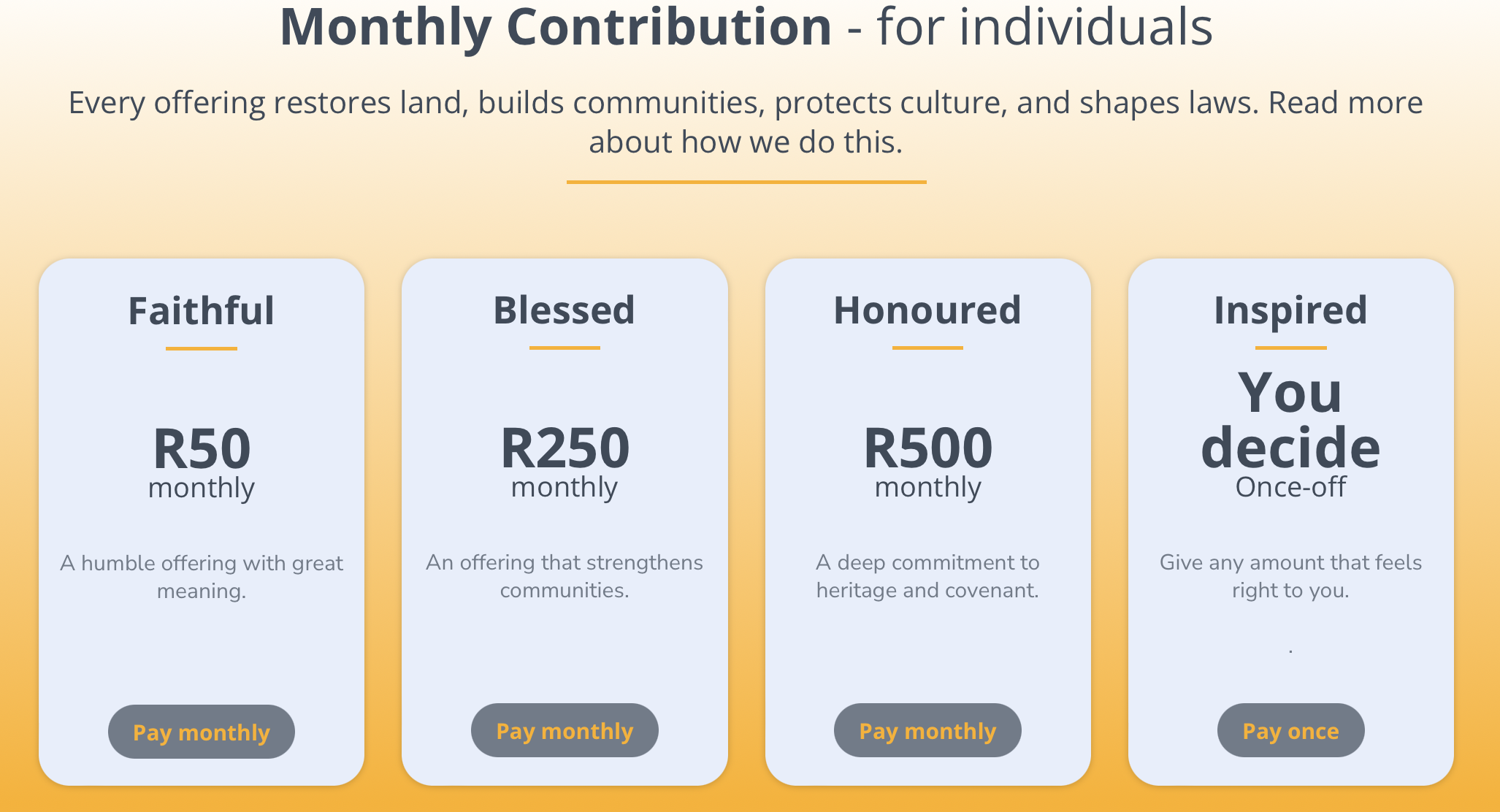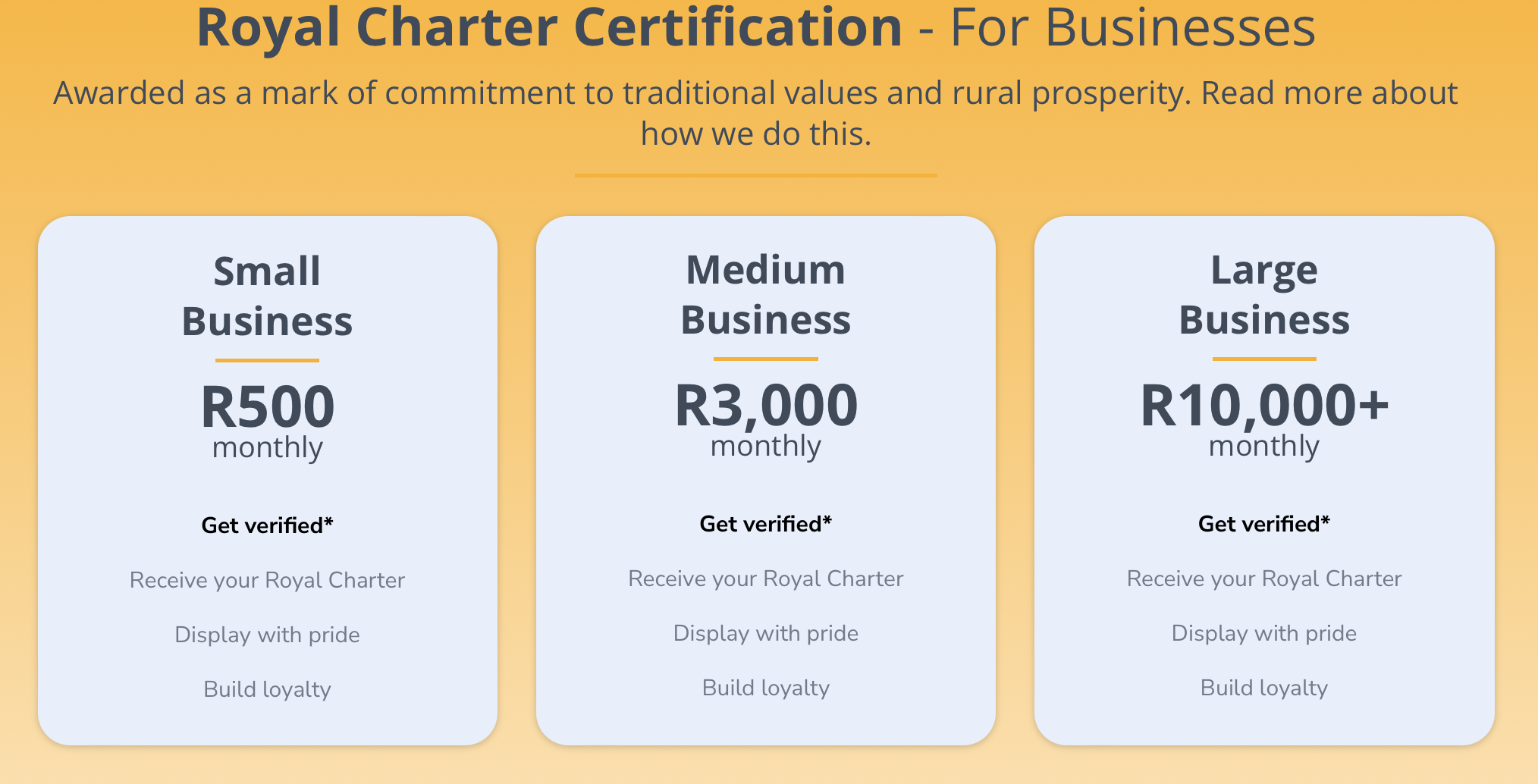Constitutional Monarchy
Completing South Africa’s Governance Architecture
A practical case for strengthening traditional leadership within the Constitution
South Africa’s governance challenge is not only about budgets, elections, or service delivery. It is structural.
We operate with two systems that both exist in real life:
the constitutional state — modern, centralised, administrative
traditional leadership — local, legitimacy-based, community-rooted
The problem is not whether traditional leadership exists. It does.
The problem is that its role is too often unclear, inconsistent, and under-institutionalised — especially in rural areas where land, identity, and daily governance are inseparable.
When roles are ambiguous, accountability fails.
When accountability fails, communities lose protection.
“Land without lawful governance is land without justice.”
This article is not a call to replace democracy.
It is a call to complete the architecture of democracy in rural South Africa.
The safer framing: constitutional integration, not “monarchy”
The phrase “constitutional monarchy” creates noise because it sounds like a national system change.
A more accurate and workable idea is:
Constitutional integration of traditional leadership
Meaning:
traditional leadership is recognised within the constitutional order,
its powers and limits are defined clearly through legislation,
it operates with enforceable accountability,
and it performs a real governance function where it already carries legitimacy.
This aligns with a modern governance principle called subsidiarity: decisions should be taken at the most local competent level — but with clear rules, safeguards, and oversight.
In practice, this is not about giving anyone unchecked power.
It is about designing lawful authority that can be audited, challenged, and defended.
The case in one sentence
South Africa needs a clearer, enforceable, and accountable governance role for traditional leadership in communal areas — not as ceremony, but as custodianship, coordination, and community protection within the law.
Five principles to guide the design
A constructive reform agenda can be anchored in five principles — cultural, practical, and measurable:
1) Family
Stable communities depend on stable local governance. Traditional structures can reinforce social cohesion where the state’s presence is uneven — but only if responsibilities are clearly defined and linked to accountability.
2) Flag
A nation is not only institutions; it is identity. A constitutional framework that treats heritage with seriousness strengthens unity rather than dividing citizens into “modern” versus “traditional” camps.
3) Facts
Communal tenure, customary law, and community legitimacy are not abstract ideas. They are operating systems. Reform must be evidence-led: tenure realities, governance failures, court outcomes, and measurable community benefit.
4) Freedom
Economic participation requires predictable rules — especially around land use, access, and development rights. Clarity in local authority reduces arbitrary outcomes, delays, and exploitation.
5) Faith
Many communities root public life in moral and spiritual accountability. Recognising that ethos — while maintaining constitutional rights and non-discrimination — can strengthen ethical leadership norms and social discipline.
“Respect for tradition is not anti-modern. It is how legitimacy is preserved.”
What a “real role” can look like
The biggest error is to keep traditional leadership symbolic while expecting it to solve practical problems.
If traditional governance is to matter, it must be operational. That means defining a scope of authority that is lawful, bounded, and accountable.
A practical role can include:
1) Land-use governance and community benefit
structured community consultation processes
documented consent protocols
transparent negotiation frameworks for community benefit in development projects
2) Protection against unlawful encroachment
early-warning mechanisms and local reporting channels
lawful escalation pathways to municipalities, courts, and enforcement structures
evidence packs that support proper action rather than conflict and speculation
3) Local development coordination
convening capability across municipalities, donors, professionals, and community structures
project prioritisation with transparent criteria
coordination that reduces duplication and stops projects from dying between departments
4) Governance readiness and reporting
minimum governance standards for councils and community vehicles
predictable reporting cycles for community accountability and funder confidence
conflict-of-interest rules, procurement discipline, and record-keeping standards
This does not require “rule by kings.”
It requires rule of law with locally legitimate institutions operating inside the law.
Why this matters: the trust gap is the real bottleneck
Most rural projects do not fail because people don’t care.
They fail because projects are not governable.
Donors and investors hesitate — not because they dislike rural communities — but because they cannot defend risk:
unclear mandates
weak documentation
inconsistent reporting
no enforceable accountability
uncertainty in land tenure and authority
The result is a vicious cycle: high need, low investment, stalled development.
When governance becomes clear, funding becomes possible.
When funding becomes possible, delivery becomes normal.
Where ROLESA and RACC fit
Traditional leadership recognition and governance capability are not the same thing.
They are complementary.
ROLESA advances the recognition and clarity that traditional leadership requires within national frameworks.
RACC builds the operating capacity that makes that recognition functional: governance documentation, compliance readiness, reporting discipline, and investment-ready project structures.
In other words:
ROLESA fights for legal clarity and standing.
RACC builds systems that turn clarity into delivery.
Linking it to sustainability: how the subscription model supports governance
A major weakness in rural development is dependence on once-off funding.
Once-off money funds events.
It does not fund institutions.
But the work required to close the trust gap is repetitive and unglamorous:
legal files
evidence packs
governance manuals
reporting cycles
verification processes
coordination meetings
compliance administration
That is why RACC’s sustainability model is built around a national subscription campaign — a stable base of contributors funding the “readiness layer” that turns community priorities into investable, accountable projects.
A future rooted in legitimacy and law
The goal is not nostalgia.
The goal is a South Africa where rural governance is:
lawful, clear, and accountable
culturally legitimate
economically functional
able to defend community interests with evidence and procedure
That is not anti-democratic.
It is democracy completed — by integrating the institutions that already govern real lives into a framework that can be measured, audited, and trusted.


Key Differences:

Support the work of the Royal Authority for Commerce and Charters


#ConstitutionalMonarchy #TraditionalGovernance #LeadershipForAfrica #RACC